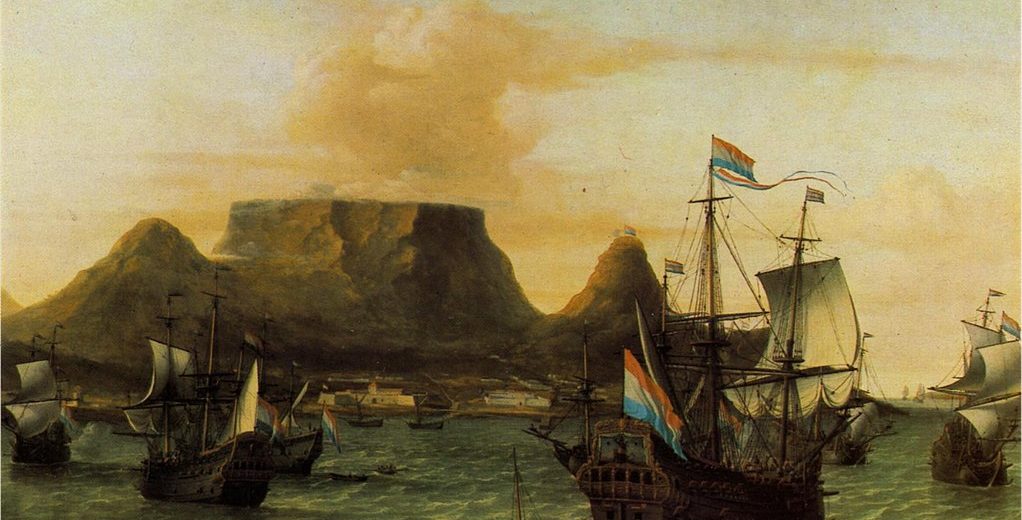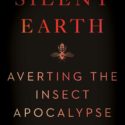Books
Real Food Reads Book Club
The Nutmeg’s Curse: Parables for a Planet in Crisis
Acclaimed writer Amitav Ghosh finds the origins of our contemporary climate crisis in Western colonialism’s violent exploitation of human life and the natural environment.
A powerful work of history, essay, testimony, and polemic, Amitav Ghosh’s new book traces our contemporary planetary crisis back to the discovery of the New World and the sea route to the Indian Ocean. The Nutmeg’s Curse argues that the dynamics of climate change today are rooted in a centuries-old geopolitical order constructed by Western colonialism. At the center of Ghosh’s narrative is the now-ubiquitous spice nutmeg. The history of the nutmeg is one of conquest and exploitation—of both human life and the natural environment. In Ghosh’s hands, the story of the nutmeg becomes a parable for our environmental crisis, revealing the ways human history has always been entangled with earthly materials such as spices, tea, sugarcane, opium, and fossil fuels. Our crisis, he shows, is ultimately the result of a mechanistic view of the earth, where nature exists only as a resource for humans to use for our own ends, rather than a force of its own, full of agency and meaning.
Writing against the backdrop of the global pandemic and the Black Lives Matter protests, Ghosh frames these historical stories in a way that connects our shared colonial histories with the deep inequality we see around us today. By interweaving discussions on everything from the global history of the oil trade to the migrant crisis and the animist spirituality of Indigenous communities around the world, The Nutmeg’s Curse offers a sharp critique of Western society and speaks to the profoundly remarkable ways in which human history is shaped by non-human forces.
Praise for The Nutmeg’s Curse
“Topics such as climate change usually encourage looking into the future, but Amitav Ghosh’s captivating new book, The Nutmeg’s Curse, instead looks back in time, tracing the patterns that gave rise to climate change to the beginnings of colonialism and following those patterns all over the globe.”
— American Scientist
“In this brilliant book, aflame with insight and moral power, Ghosh shows that in the history of the nutmeg lies the path to our planetary crisis, twisting through the horrors of empire and racial capitalism. The Nutmeg’s Curse brings to life alternative visions of human flourishing in consonance with the rest of nature—and reminds us how great are the vested interests that obstruct them.”
— Sunil Amrith, author of Unruly Waters
“What do you do when the subject matter of life on this planet seems to lack . . . life? You read The Nutmeg’s Curse, which eschews the leaden language of climate expertise in favor of the reanimating powers of mythology, etymology, and cosmology. Ghosh challenges readers to reckon with war, empire, and genocide in order to fully grasp the world-devouring logics that underpin ecological collapse. We owe a great debt to his brilliant mind, avenging pen, and huge soul. Do not miss this book—and above all, do not tell yourself that you already know its contents, because you don’t.”
— Naomi Klein, author of This Changes Everything: Capitalism vs. The Climate
About the Author
 Amitav Ghosh is a novelist and essayist whose many books include the acclaimed Ibis Trilogy (Sea of Poppies, River of Smoke, and Flood of Fire), Gun Island, Jungle Nama: A Story of the Sundarban, and The Great Derangement: Climate Change and the Unthinkable, the latter also published by the University of Chicago Press.
Amitav Ghosh is a novelist and essayist whose many books include the acclaimed Ibis Trilogy (Sea of Poppies, River of Smoke, and Flood of Fire), Gun Island, Jungle Nama: A Story of the Sundarban, and The Great Derangement: Climate Change and the Unthinkable, the latter also published by the University of Chicago Press.
Show Notes
2:32 | Why European navigators sailed off in search of spices in the 17th century
4:00 | Dutch colonialism and the 1621 Banda Massacre
6:10 | Land with a capital “L” and how Native American people attach meaning to the land
See: Max Liboiron, Pollution Is Colonialism, Duke University Press 2021.
6:50 | “For European settlers, the land of America was essentially meaningless.”
8:10 | The abuses of industrial agriculture and collapse of the Ogallala and Upper Ganges aquifers
9:46 | Bandanese nutmeg production as the earliest instance of industrial agriculture and racial capitalism (and why it matters)
11:19 | Racialized workforces in agriculture around the world
12:00 | Young people from rural backgrounds are drawn to cities, away from farming
14:20 | The pleasures of gardening, including growing your own spices
15:15 | How spices came to be devalued (and associated with “onanism”!)
17:40 | On the mysteries of the vanilla plant
20:40 | Environmentalism’s dark history (and present) of ethnic cleansing
20:59 | Displacement of the Indigenous Peoples in Ngorongoro Crater
See: Oakland Institute, “The Looming Threat of Eviction: The Continued Displacement of the Maasai Under the Guise of Conservation in Ngorongoro Conservation Area”
22:20 | The role of militarism and technologies of war in transforming food systems and contributing to the climate crisis
23:30 | The Pentagon and other military institutions as the largest greenhouse gas emitters in the world, and yet they are excluded from climate negotiations
25:42 | Amitav’s call for a “vitalist politics”
Episode Credits
Host: Tanya Kerssen
Co-Producers: Tanya Kerssen and Tiffani Patton
Editor: Jaime Roque

 Amitav Ghosh is a novelist and essayist whose many books include the acclaimed Ibis Trilogy (Sea of Poppies, River of Smoke, and Flood of Fire), Gun Island, Jungle Nama: A Story of the Sundarban, and The Great Derangement: Climate Change and the Unthinkable, the latter also published by the University of Chicago Press.
Amitav Ghosh is a novelist and essayist whose many books include the acclaimed Ibis Trilogy (Sea of Poppies, River of Smoke, and Flood of Fire), Gun Island, Jungle Nama: A Story of the Sundarban, and The Great Derangement: Climate Change and the Unthinkable, the latter also published by the University of Chicago Press.


